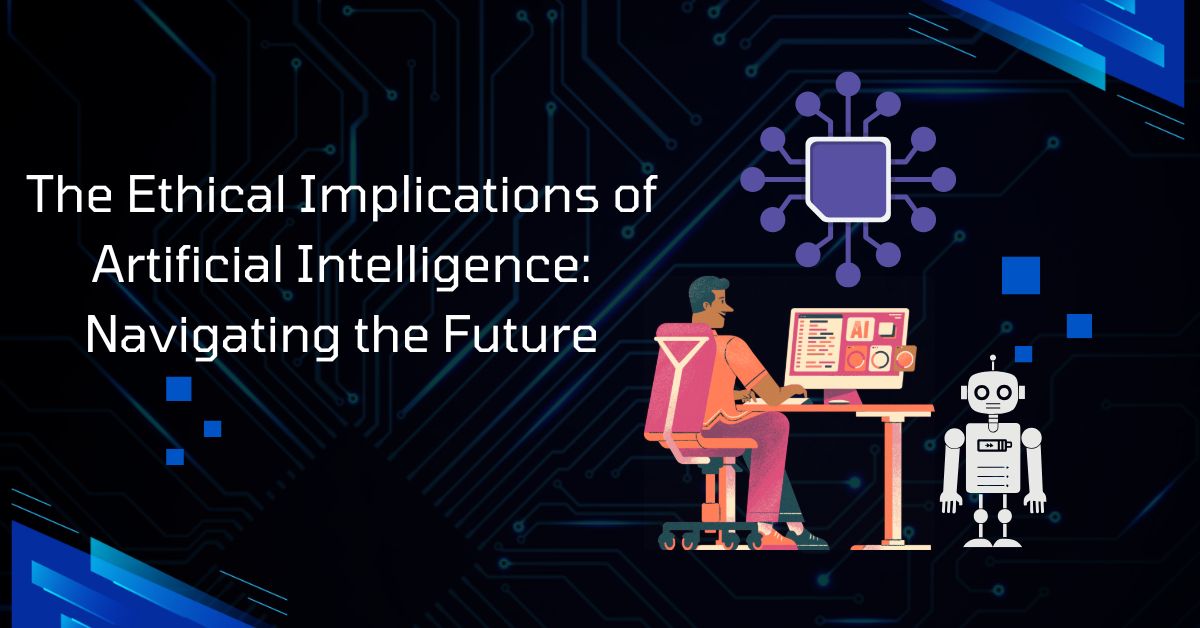The Ethical Implications of Artificial Intelligence: Navigating the Future
Artificial intelligence (AI) is increasingly becoming a cornerstone of technological advancement in various industries. From healthcare and finance to entertainment and transportation, AI’s influence is undeniable. As its capabilities continue to grow, so too does the importance of addressing the ethical implications inherent in its development and deployment. The evolving landscape of AI presents myriad opportunities and challenges, making it imperative to focus on the ethical considerations that accompany this powerful technology.
Understanding Artificial Intelligence
Artificial intelligence can be defined as the simulation of human intelligence in machines programmed to think and learn like humans. These systems can process data, recognize patterns, and make decisions with varying degrees of autonomy. AI is generally categorized into three types:
- Narrow AI: Also known as weak AI, this type refers to systems designed for a specific task, such as voice recognition or image classification. It operates under a limited scope and is the most prevalent form of AI available today.
- General AI: Often referred to as strong AI, this type involves machines that possess the ability to understand, learn, and apply intelligence across a broader range of tasks, much like a human. General AI is still largely theoretical.
- Superintelligent AI: This represents an advanced form of AI that surpasses human intelligence in all respects. While speculative, superintelligent AI poses significant existential considerations and remains a subject of intense debate and research.
The Importance of AI Ethics
The development of AI technology raises critical ethical questions that must be addressed to ensure its responsible and equitable use. Unethical practices in AI can lead to severe consequences, including exacerbating social inequalities, infringing on privacy rights, and eroding trust in technology. As AI systems influence and automate decision-making processes, the ethical frameworks guiding their development become essential.
Prioritizing AI ethics is crucial not only to prevent harmful outcomes but also to foster innovation that aligns with societal values. Adopting ethical guidelines ensures that AI benefits humanity while minimizing risks, fostering accountability, transparency, and inclusivity.
Key Ethical Issues in AI
AI Bias and Fairness
Bias in AI systems is one of the most pressing ethical issues. These biases can stem from biased training data, leading to discriminatory outcomes based on race, gender, or other characteristics. For example, a case study from a financial institution revealed that their AI credit assessment algorithm disproportionately favored male applicants. Such biases undermine the fairness of AI systems and necessitate rigorous testing and mitigation strategies.
“AI is only as good as the data it’s trained on. Ensuring data diversity and accuracy can significantly reduce bias.” – Ethics in AI Research Group
Privacy Concerns
AI-driven data collection and analysis pose significant privacy concerns. Systems that monitor user behavior or track personal data can lead to unauthorized surveillance and data breaches. Protecting user privacy requires robust safeguards and transparent data policies to establish and maintain trust.
Transparency and Accountability
AI systems often operate as black boxes, making it difficult to understand how decisions are made. This lack of transparency complicates accountability, especially when errors occur. Implementing explainable AI (XAI) techniques can enhance transparency and ensure that stakeholders understand and trust AI systems.
Case Studies of AI Ethics in Action
Real-world examples illustrate how ethical considerations affect AI’s development and deployment:
An example of ethical AI in healthcare is IBM Watson, which uses AI to assist in diagnosing and recommending treatments for cancer patients. By embedding ethical guidelines, IBM ensures that AI provides recommendations based on the most recent and comprehensive medical data, thus improving patient outcomes without compromising privacy or accuracy.

In the realm of autonomous vehicles, the company Waymo provides another case study. Ethical dilemmas are inherent in programming vehicles to make critical decisions in scenarios where harm is unavoidable, such as breaking the rules of the road to avoid hitting pedestrians. Ethical frameworks guide these systems to prioritize human life and minimize harm.

Guidelines and Frameworks for Ethical AI
As AI continues to evolve, numerous organizations and governments are establishing frameworks to guide ethical AI development. One prominent example is the European Union’s AI Act, which proposes regulations to ensure that AI systems are safe, transparent, and uphold fundamental rights.
“Ethical AI frameworks are vital to ensuring that development aligns with societal values and human rights.” – Global AI Ethics Consortium
Global organizations such as the Institute of Electrical and Electronics Engineers (IEEE) and OpenAI are also contributing to ethical guidelines. The IEEE’s Ethics in Action initiative, for example, provides principles focused on the assurance of transparency, accountability, and fairness in AI systems.
The Future of Artificial Intelligence and Ethics
The future of AI and ethics is both promising and complex. As AI technologies advance, new ethical dilemmas will emerge, necessitating ongoing vigilance and dialogue. Emerging trends such as AI in mental health support, AI-generated content, and human-AI collaboration introduce fresh challenges that require innovative ethical approaches.
Continual advancements like quantum computing could further complicate the ethical landscape, providing AI with enhanced processing capabilities that could outpace current ethical considerations. To navigate this future, interdisciplinary collaboration among technologists, ethicists, policymakers, and the public is essential.
Read more about the future of AI and ethics here.
Conclusion
The relationship between artificial intelligence and ethics is a crucial dialogue in shaping the future of technology. By understanding and addressing the ethical implications of AI, we can harness its potential to enhance society while minimizing risks and safeguarding individual rights. As AI continues to evolve, maintaining a commitment to ethical guidelines will be indispensable in navigating its complexities and ensuring its equitable and beneficial use.
For more in-depth discussions, explore our series of articles on AI ethics and emerging technologies. Together, let us champion a future where artificial intelligence serves as a force for good.
Engage with us: We invite you to share this article, leave a comment with your thoughts, and discover more content on related topics.







